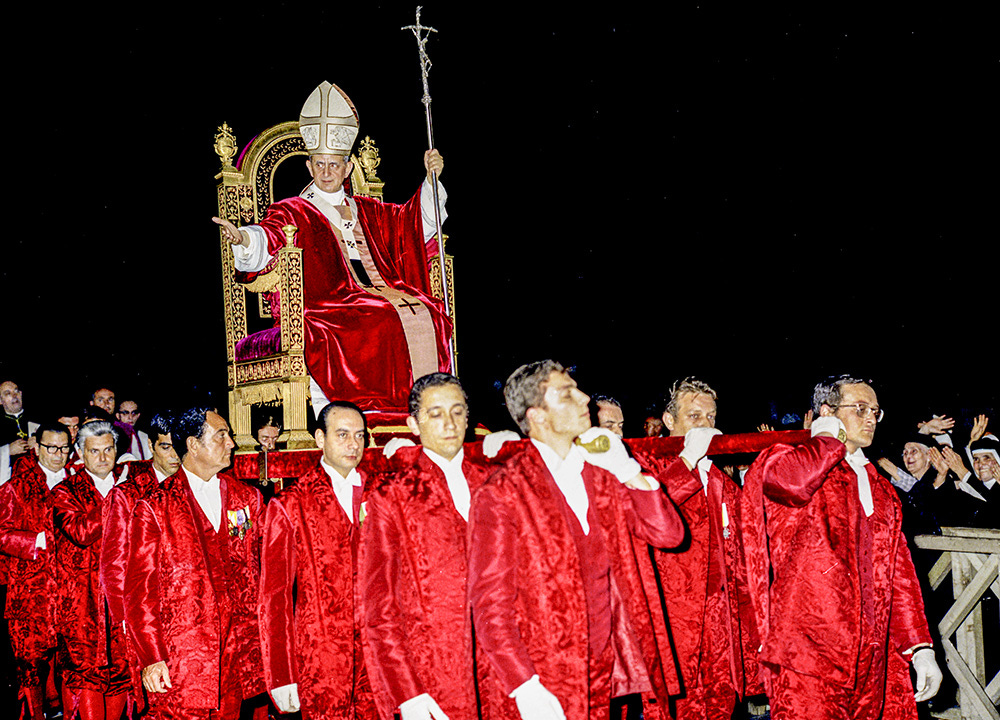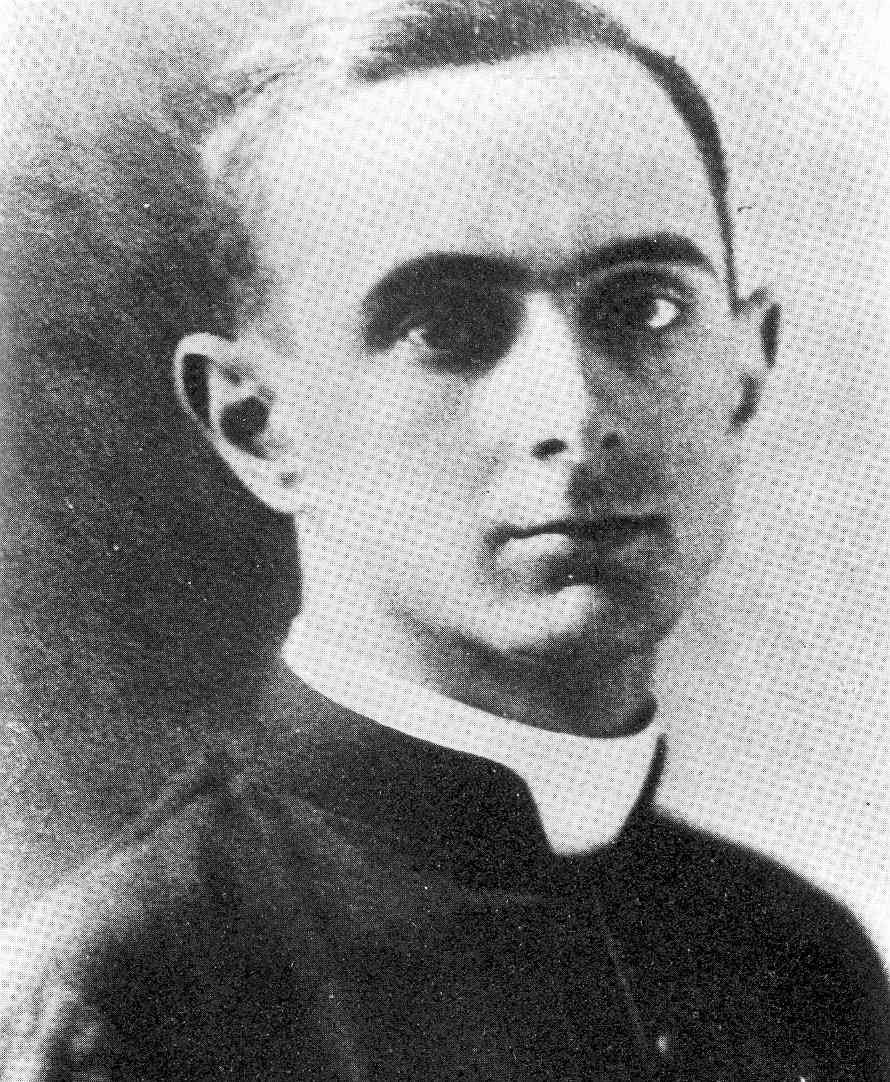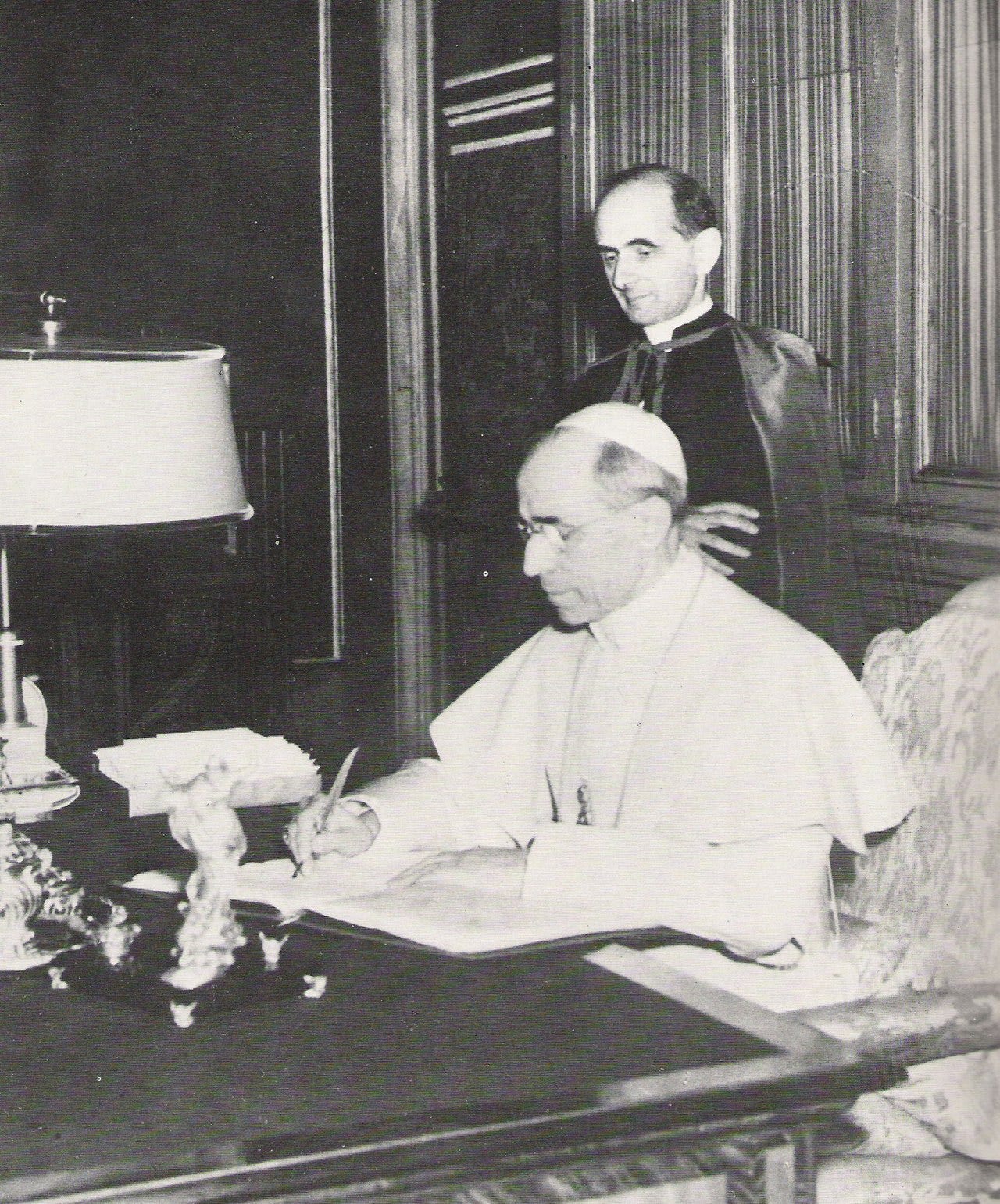The Pope Who Predicted the Future
Pope St. Paul VI gets a bad rap by some, but he without a doubt was prophetic in one particular area...
Here’s our latest episode of The Popecast – in text form here if you’re more inclined, or the video/audio version at the link below:
Giovanni Battista Montini was born in 1897, in the Lombardy region of Italy. He was ordained a priest at age 22, and just three years later was called into service for the Vatican Secretariat of State – the Church’s diplomatic arm. He’d work in Rome for the majority of his 30 years in service to that office, but for a short time early on he was sent to Warsaw to work in the office of Poland’s papal nunciature – a fancy word basically for the pope’s embassy, and the office of his ambassador, the apostolic nuncio.
Montini eventually grew to become one of the closest advisors to Pope Pius XII, who was pope from 1939-1958. Montini served under Pius prior to the latter’s election, then he became Pius’ co-Secretary of State in 1944, at the height of World War II – fun fact – when Pius himself was involved in a clandestine plot to kill Hitler. If you don’t believe me, go check out the book Church of Spies: The Pope’s Secret War Against Hitler.
At any rate, Leading up to and during the war, it was Montini who, at Pius’ request, ran a special information office regarding prisoners of war and refugees. In the eight year span from 1939 to 1947, the office received almost 10 million requests for information, and pushed out over 11 million replies! For his efforts, Montini was constantly attacked by Benito Mussolini’s government, but was staunchly defended by the Vatican.
10 years later, Pius named Montini the Archbishop of Milan, the largest diocese in Italy, and four years after that, Pius’ death gave way to the election of Angelo Roncalli, the man we know better now as St. John XXIII.
A potential point of drama – which likely didn’t phase Montini – was that the Vatican Secretary of State typically was a job rewarded with an elevation to cardinal, if the man in the seat wasn’t yet one. Rumor was that he’d been offered the promotion by Pius XII several years before, but out of humility declined the office.
Good Pope John, however, must have insisted, because he started passing out red hats soon after his election, and Montini was one of those made a cardinal in John’s first consistory .
Montini became very close to this pope, as he had been to Pius XII – He served John XXIII faithfully as the latter convened the Second Vatican Council, but at one point reportedly didn’t think it was the greatest idea, saying once about the pope, “This old boy does not know what a hornets nest he is stirring up.”
Still, Montini was faithful to the Holy Father’s efforts and a key player in the Council’s success, leading the Central Preparatory Commission, moving into the Vatican during the council, and ultimately seeing the council to its conclusion after John’s untimely death from stomach cancer in 1963.
Prior to John XXIII’s death, it’s thought that not only was Cardinal Montini seen as the most likely successor, but he was John’s own choice for the man to follow him in the Chair of Peter. That wish came to fruition in the conclave of 1963, when, on the sixth ballot, the Archbishop of Milan was elected as the 261st successor to St. Peter.
He took the name Paul VI after St. Paul, giving a nod to the missionary efforts of the great saint, at a time when the Church was badly in need of what we now refer to as the New Evangelization.
Right from outset, Paul VI shirked many of the more formal trappings of the papacy. He was the last pope to receive a coronation – the photos of which are absolutely epic – but even that was substantially modified. The papal tiara – the thrice-crowned signature of the papal office for centuries – he donated to the Basilica of the National Shrine of the Immaculate Conception in Washington DC.
He also ceased usage of the sedia gestatoria – the chair upon which the pope was carried into and out of public events. He continued to replace these sorts of ceremonial functions throughout his papacy in an effort to better humanize the papacy, and with an understanding that no longer was the pope a leader of vast properties or armies. It was the pope’s spiritual authority chiefly as the Servant of the Servants of God that would hold sway into the future, which has continued to be true all the way up to our beloved Pope Leo XIV.

There were three other main things for which Paul VI has become known for:
1. Reconvening and finishing the Second Vatican Council.
Canon law requires that any ecumenical council – that is, a council of the whole Church, of which there have only be 21 in the 2,000 year history of Catholicism – be suspended upon the death of a pope. After Paul VI was elected, he chose to see the work started by John XXIII through to its conclusion. With one of the four sessions of Vatican II under their belt, Paul oversaw the final three sessions in 1963, 64, and 65, when it concluded.
Though he naturally oversaw the whole effort, three actions in particular stand out: He created a permanent Synod of Bishops – basically an advisory body for the pope. He declared the Blessed Virgin Mary as Mother of the Church – a nod to Mary’s presence at Pentecost, and a title Pope Francis recently doubled down on. Finally, he made a specific addition to Lumen Gentium, the council document in which the Church explained how she sees herself, on both the college of bishops and a reiteration about the primacy of the pope. This document in general was the one from the council which Paul VI saw as the most vital, since it contained Paul’s teaching on the universal call to holiness. It’s written in Lumen Gentium:
"all the faithful of Christ of whatever rank or status, are called to the fullness of the Christian life and to the perfection of charity; by this holiness as such a more human manner of living is promoted in this earthly society."
2. Traveling the world.
Paul VI traveled far and wide, earning the nickname “The Pilgrim Pope” and being the first pontiff to visit six continents. He visited the Holy Land in 1964, marking the first meeting between a pope and the Eastern Orthodox Patriarch of Constantinople in centuries. He was the first pope to visit the Western Hemisphere, when he came to New York City in 1965 and addressed the United Nations, in addition to visits to Uganda, Colombia, Portugal (for the 50th anniversary of the apparitions of Our Lady of Fatima), and the Philippines.
3. Being a prolific writer and - as it turned out - a prophet.
For his writings, Paul VI published seven encyclicals, which interestingly all came in the first 4 years of his papacy. Three of the seven taught on the Blessed Mother, Mysterium Fidei in 1965 was a teaching on the Eucharist, Populorum Progressio in 1967 exhorted governments to ensure they served all people and not just a select few, Sacerdotalis Caelibus also in 1967, doubled down on the Church’s commitment to priestly celibacy at a time when it was under attack, and finally Humanae Vitae in 1968, Paul’s masterpiece, addressed the value of human life, the nature of marriage, and included prophetic teachings on what would happen if the wider world accepted the use of contraception.
But more on that in a minute.
—
Paul VI reigned as pope until 1978, finishing up what really was a centuries-long effort to reform the Mass in 1969 and the Church calendar in 1970. Notably, he elevated Karol Wojtyla – the future St. John Paul II – to cardinal in 1967, and Joseph Ratzinger – the future Pope Benedict XVI – to cardinal in 1977.
Paul grew ill in the summer of 1978, and died on August 6 in Castel Gandolfo, the papal summer residence. He’s buried beneath St. Peter’s Basilica in a simple tomb bearing his name. Paul’s confessor, Jesuit Father Paolo Dezza called Paul “a man of great joy” and wrote:
“If Paul VI was not a saint, when he was elected Pope, he became one during his pontificate. I was able to witness not only with what energy and dedication he toiled for Christ and the Church but also and above all, how much he suffered for Christ and the Church. I always admired not only his deep inner resignation but also his constant abandonment to divine providence.”
Pope Paul’s legacy is a rich one. Not only was he hailed as a saint virtually from the moment of his death, but time has shown him – as I mentioned a minute ago – to be a great prophet. His encyclical Humanae Vitae came at a time when the whole religious world was calling on the Catholic Church to rubber-stamp artificial birth control as acceptable (at that point) within the confines of marriage.
After a meeting of all of the world’s religions EXCEPT Catholicism convened at the Lambeth Conference in the 1930s and decided that artificial contraception was acceptable in certain contexts, the Catholic Church was on the hot seat to follow suit. So, ultimately John XXIII convened a commission of individuals from all corners of the world and all sorts of professional backgrounds – doctors, married couples, clergy, laypeople – with the expressed purpose of investigating the issue and making a recommendation to the pope.
The commission, to keep a long story short, advised the Paul VI that the Church should indeed endorse the use of artificial birth control. Paul took their recommendation, thanked them for their work, and then opted to put his response to paper. The fruit of his thought was Humanae Vitae, and in it – the short, 31-paragraph document – Paul gave his reasons why the Church would, in fact, NOT be approving of its use, now or ever.
After addressing the issue of population growth around the world, speaking on the nature of marital love, and explaining the commission’s origins and purpose, Paul pulled precisely zero punches in spelling out exactly what would happen if the world continued on its present path of allowing the use of artificial contraception, and that brings us to today’s quote as we wrap up this week’s episode..
Let’s go through the 17th paragraph of the document in particular::
Responsible men can become more deeply convinced of the truth of the doctrine laid down by the Church on this issue if they reflect on the consequences of methods and plans for artificial birth control. Let them first consider how easily this course of action could open wide the way for marital infidelity and a general lowering of moral standards.”
Any disagreements there have to be absolutely unhinged. Right out of the gate, Paul VI all but prophesies the next 50 years – can anyone argue that there’s been a general lowering of moral standards since 1968? Or an increase in marital infidelity?
Let’s keep going…
Not much experience is needed to be fully aware of human weakness and to understand that human beings—and especially the young, who are so exposed to temptation—need incentives to keep the moral law, and it is an evil thing to make it easy for them to break that law.
I don’t know about you, but I’ve got three little boys and they’ll do just about anything to push the boundaries my wife and I give them. I think of the great image from GK Chesterton about kids not playing fully on a playground atop a great cliff, that is until a fence was put around the whole perimeter – Pope Paul points out this very thing. Rules are in place to not restrict our lives, but to allow us more freedom to flourish and live more fully as we were intended: To love our Creator above all things and to love our neighbor as ourselves.
Here’s prophecy #3:
Another effect that gives cause for alarm is that a man who grows accustomed to the use of contraceptive methods may forget the reverence due to a woman, and, disregarding her physical and emotional equilibrium, reduce her to being a mere instrument for the satisfaction of his own desires, no longer considering her as his partner whom he should surround with care and affection.
Hard to argue this one too, isn’t it? Look no further than the prevalence of pornography in our culture today – birth control of course isn’t the sole cause of that of course, but it’s certainly played a part.
And lastly, Paul’s final prophecy:
Finally, careful consideration should be given to the danger of this power passing into the hands of those public authorities who care little for the precepts of the moral law. Who will blame a government which in its attempt to resolve the problems affecting an entire country resorts to the same measures as are regarded as lawful by married people in the solution of a particular family difficulty? Who will prevent public authorities from favoring those contraceptive methods which they consider more effective? Should they regard this as necessary, they may even impose their use on everyone. It could well happen, therefore, that when people, either individually or in family or social life, experience the inherent difficulties of the divine law and are determined to avoid them, they may give into the hands of public authorities the power to intervene in the most personal and intimate responsibility of husband and wife.
Consequently, unless we are willing that the responsibility of procreating life should be left to the arbitrary decision of men, we must accept that there are certain limits, beyond which it is wrong to go, to the power of man over his own body and its natural functions—limits, let it be said, which no one, whether as a private individual or as a public authority, can lawfully exceed. These limits are expressly imposed because of the reverence due to the whole human organism and its natural functions.
Once again, this was written in NINETEEN SIXTY EIGHT!
That’s 57 years ago for those keeping score at home, but it’s like he’s describing the very same cultural milieu in which we live.
And lastly if you’d like to support the work we do here, as I mentioned at the top of the show, the best place to do that is becoming a paid subscriber over at Today in Papal History, which can be found in the description below. Again, the show and the newsletter with always be free to readers, but time is very precious, so your gifts in that regard allow for more time to produce the show and write more posts on these forgotten corners of papal history.
Well that’s it for this week. Let us as for the prayers of Pope St. Paul VI, that we can remember the reverence due to those persons we encounter on a daily basis, and never tire of speaking the truth in charity, even when it’s unpopular.
And above all, never forget – these are strange times we live in, but they are no stranger than in ages past.
Until next time.







